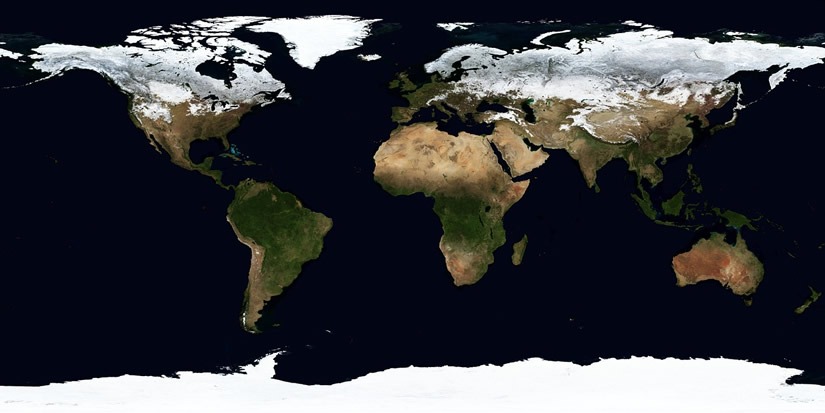On Monday, the Dow Jones (US30) Index rose by 0.11%, the S&P 500 (US500) gained 0.47%, and the tech-heavy Nasdaq (US100) closed up 0.94%, setting an all-time high. The US stocks closed higher, driven by a surge in technology shares. Tesla jumped by 3.6% after CEO Elon Musk reported purchasing about $1 billion in stock, his largest open-market purchase ever, while Alphabet gained 4.3%, reaching a $3 trillion valuation and boosting the communication services sector. Nvidia ended the session flat, paring losses after a Chinese regulator stated the company had violated antitrust law, and Texas Instruments fell 2.4% on news of a Chinese anti-dumping investigation into US analog chipmakers. Trade tensions also persisted as President Donald Trump signaled progress in US-China talks, including a potential deal related to TikTok, though risks from tariffs and tech restrictions remain.
The Mexican peso strengthened to 18.4 per US dollar, its strongest level since July 2024, as the US dollar weakened and Mexico’s macroeconomic indicators remained stable, increasing the attractiveness of peso-denominated assets. Banco de México is maintaining a tight policy and signaling careful calibration even amid moderate inflation. Higher real interest rate differentials compared to peer countries, sustained demand for forward markets, and Mexico’s strong trade ties with the US support demand for local securities, limiting capital outflows.
European stock markets were mostly up on Monday. The German DAX (DE40) rose by 0.21%, the French CAC 40 (FR40) closed up 0.92%, the Spanish IBEX35 (ES35) gained 0.57%, and the British FTSE 100 (UK100) closed down 0.07%. The DAX Index in Frankfurt experienced some volatility. Investors are awaiting decisions from major central banks, including the US Federal Reserve, the Bank of England, the Bank of Japan, and the Bank of Canada. The US Central Bank is widely expected to cut rates by at least 25 basis points. Meanwhile, attention remains on France, as Fitch downgraded its credit rating, citing rising public debt and increasing political polarization, which raises concerns about the size of the upcoming budget deficit.
WTI crude oil prices rose nearly 1% to $63.3 per barrel on Monday, extending last week’s gains as traders weighed escalating Ukrainian drone attacks on Russian energy facilities against expectations of an impending supply surplus. Ukraine launched a major strike with over 360 drones, briefly causing a fire at the 355,000 bpd Kirishi oil refinery, just days after an attack on the Primorsk export terminal, which handles around 1 million bpd. Pressure on Moscow intensified after US President Donald Trump reaffirmed his willingness to impose massive sanctions on Russian oil if NATO allies cease their purchases, which could alter global energy flows.
On Tuesday, silver (XAG/USD) stabilized at around $42.5 per ounce, trading near its 14-year high as investors prepared for an expected US Federal Reserve rate cut this week. Markets are almost fully pricing in a 25 basis point cut on Wednesday, with 67 basis points of cuts projected by the end of the year. President Donald Trump also pressured Fed Chair Jerome Powell for a more significant cut, citing weakness in the housing market. Elsewhere, the central banks of Canada and China are expected to ease policy this week, while the central banks of Japan and the UK are likely to hold theirs unchanged. On the geopolitical front, US-China trade talks in Spain showed progress, and talks between Trump and Chinese President Xi Jinping are scheduled for Friday. Meanwhile, industrial demand from solar energy, electric vehicles, and electronics continues to intensify pressure on the physical silver market, while supply constraints support prices.
Asian markets had a strong day. The Japanese Nikkei 225 (JP225) rose by 0.89%, China’s FTSE China A50 (CHA50) climbed 0.46%, Hong Kong’s Hang Seng (HK50) gained 0.22%, and the Australian ASX 200 (AU200) posted a negative result of 0.13%.
The Bank of Thailand and the Ministry of Finance are considering introducing a tax on online gold trading in baht. Officials state the measure will limit gold exports and make holding it in the country more expensive, as the influx of dollars from gold shipments has strengthened the currency. Bank of Thailand representatives will meet with gold traders on Monday to discuss the metal’s impact and stricter reporting requirements.









